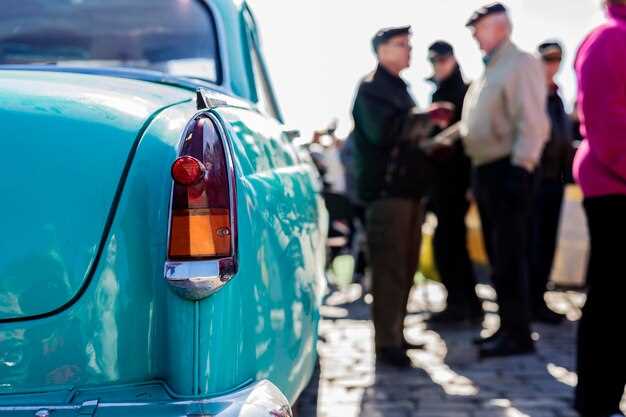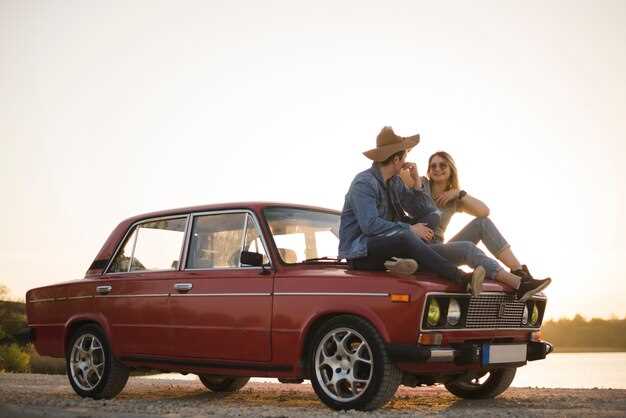
In the world of vintage cars, the sales process can often feel overwhelming. As a collector, you want to ensure that your cherished vehicle finds its way to the right buyer who appreciates its value. Understanding the intricacies of the market is essential in achieving a quick and profitable sale.
The first step in selling your vintage car is to identify potential buyers who are genuinely interested in classic vehicles. The collector community is diverse, with many individuals seeking unique cars that reflect their personal tastes. By tapping into specialized platforms and forums, you can connect with enthusiastic buyers who understand the significance of your car.
Moreover, pricing your vintage car accurately is crucial in the sales process. Conducting thorough market research will enable you to set a competitive price that reflects both your car’s condition and its rarity. With the right approach, you can attract serious collectors and ensure a swift transaction, allowing you to part with your vehicle while maximizing its worth.
Understanding the Collector Market: Trends and Demand for Classic Cars
The collector car market has seen significant transformations over the years, influenced by various factors including economic conditions, cultural shifts, and technological advancements. Understanding these trends is essential for anyone looking to sell their vintage vehicle efficiently.
Currently, there is a noticeable increase in demand for classic cars, particularly those that are authentic, low-mileage, and in excellent condition. Sales in this niche market have surged, driven by an influx of both seasoned collectors and younger enthusiasts who seek investment opportunities and nostalgic experiences. This shift highlights a growing appreciation for automotive history and craftsmanship.
Moreover, the collector market exhibits a distinctive regionality. Certain makes and models are more desirable in some areas, affecting market dynamics. For instance, American muscle cars tend to fetch higher prices in North America, while European classics attract buyers in Europe and beyond. Researching local trends can significantly enhance the likelihood of a successful sale.
Additionally, the rise of online auction platforms and marketplaces has revolutionized how classic cars are bought and sold. These digital avenues provide access to a broader audience, allowing sellers to connect with serious collectors globally. The convenience of online visibility often results in quicker sales, making it an appealing option for those looking to part with their vintage car.
Understanding the collector market also involves recognizing the influence of social media and online communities. These platforms enable enthusiasts to share knowledge, showcase their collections, and discuss emerging trends. Engaging with such communities can provide valuable insights and potential leads for prospective buyers.
In summary, being aware of collector market trends and demands is vital for successfully selling a vintage car. By leveraging local insights, online communities, and digital platforms, sellers can position themselves effectively in a rapidly evolving market environment.
Preparing Your Vintage Car for Sale: Key Steps to Increase Appeal

When preparing your classic car for sale, the first step is to conduct a thorough clean-up. This includes washing the exterior, vacuuming the interior, and ensuring that all surfaces are polished. A clean car creates a positive first impression and can significantly increase its appeal to potential buyers.
Next, consider addressing any mechanical issues that may deter collectors. Having a well-maintained vintage car not only boosts its value but also instills confidence in buyers. Obtaining a comprehensive service history and receipts for any repairs can further enhance your car’s credibility in the sales process.
Documentation plays a crucial role in selling classic cars. Gather all relevant paperwork, including the title, registration, and any historical documentation. This information helps buyers feel secure in their purchase, knowing that they are dealing with a legitimate seller.
Investing in minor cosmetic repairs can also enhance the car’s appeal. Touching up paint, fixing minor dents, and replacing worn-out trim can make a significant difference in presentation. Even small improvements can lead to higher offers from potential collectors.
Creating an engaging advertisement is vital. Take high-quality photographs that showcase the car from various angles, highlighting its unique features. Write an honest and detailed description that captures the essence of the vehicle while emphasizing its classic heritage and any upgrades or modifications made.
Finally, pricing your vintage car correctly is essential for a swift sale. Research similar models to gauge the market value and consider consulting with classic car professionals. Setting a competitive price can attract serious buyers and expedite the sales process.
Finding the Right Platform to Reach Serious Buyers Effectively

When it comes to selling your vintage car, selecting the right platform is crucial in reaching serious buyers who appreciate classic automobiles. The vintage car market is flooded with options, but not all platforms cater to collectors or have the audience you need to make a sale quickly.
One of the best places to start is specialized online marketplaces that focus specifically on classic cars. These platforms attract genuine enthusiasts and collectors looking for their next investment. They often offer targeted advertising and outreach tools that help you showcase your vintage car effectively, maximizing visibility among serious buyers.
Additionally, consider attending classic car auctions, either in-person or virtually. Auctions tend to draw a dedicated crowd of collectors who are passionate about acquiring unique vehicles. Participating in these events can not only connect you with serious buyers but also create a competitive bidding environment, possibly driving the price up.
Social media groups and forums dedicated to vintage cars can also be valuable resources. Engaging with passionate communities allows you to connect with potential buyers directly and share your car’s story. These platforms often foster a sense of trust among members, increasing the likelihood of a successful sale.
Lastly, don’t overlook the power of word-of-mouth and local car meets. Networking with fellow car enthusiasts can lead to potential buyers who are genuinely interested. Building relationships in the classic car community can provide you invaluable leads as collectors often have friends or acquaintances also on the lookout for vintage vehicles.
In conclusion, choosing the right platform to sell your vintage car involves understanding your target audience. By leveraging specialized marketplaces, auctions, social media, and local events, you can effectively reach serious buyers and ensure a smooth selling process for your cherished classic.
